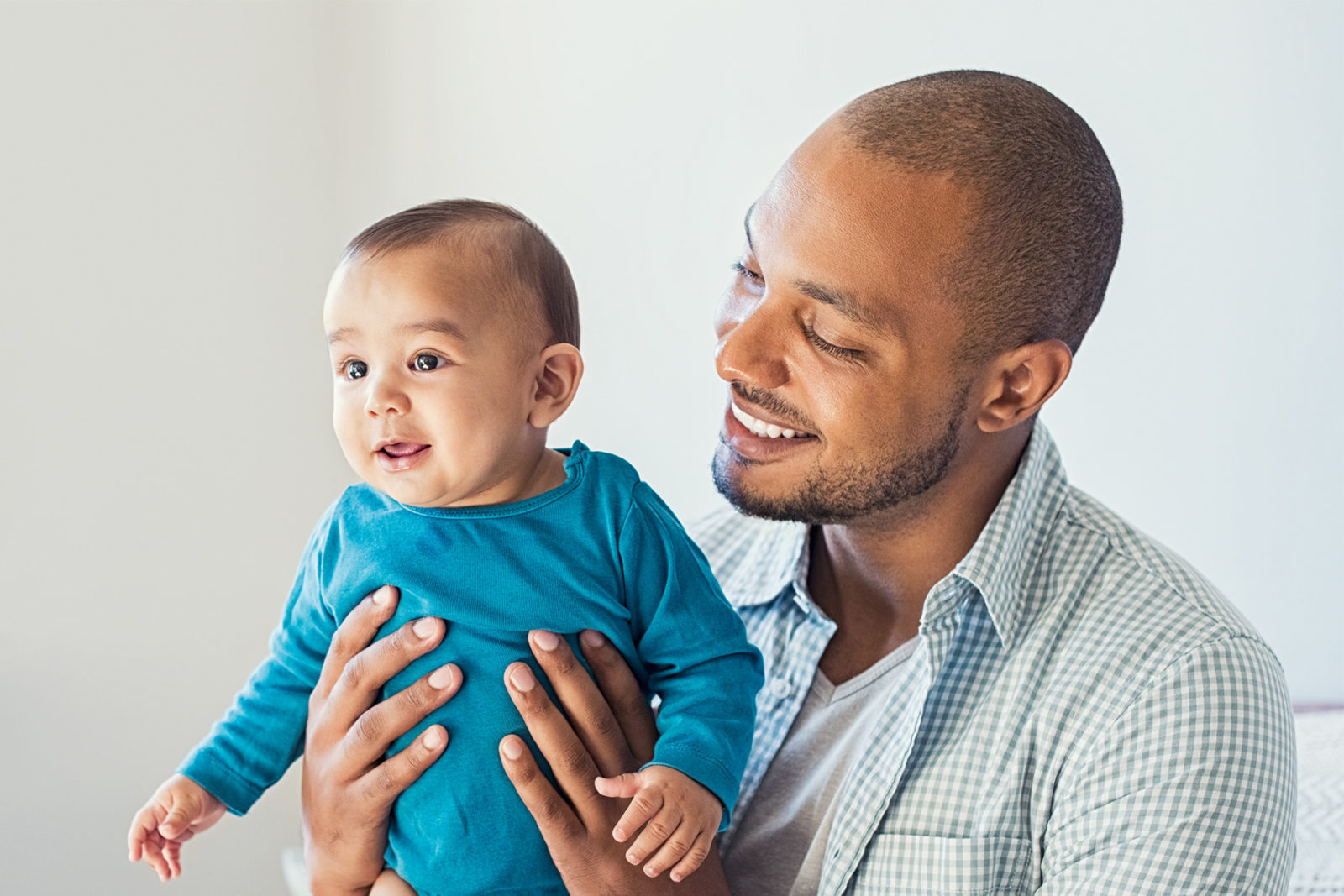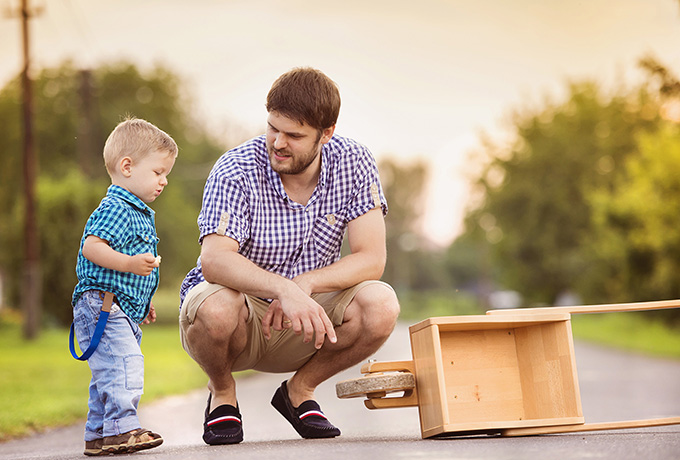Where did my life go? How to have a social life with a baby
Research shows that over half of first-time parents felt lonely and socially isolated. Let’s look at some ways new fathers can avoid social isolation with a newborn.
Read moreBecoming a father for the first time can be one of the happiest times in your life, and it can also be a very emotional and overwhelming experience. Here are some tips to help you make the most of this new change to your life, enjoying all that comes with it.

For the last few months, you and your partner have been preparing for your little bundle of joy to enter the world. You have painted the baby’s room, built the cot, and installed the car seat. And now you have become a father for the first time. Congratulations! While this can be one of the happiest times in your life, it can also be a very emotional and overwhelming experience.
Becoming a father may raise all sorts of pressures about being a provider, protector, and being engaged with your child and partner. Finding the balance can be tricky, particularly in the first few months, as you are getting used to a new routine.
Below are some tips to help you manage and get the most out of this wonderful experience.
If you feel like your partner has a greater role in caring for your new child and you’re on the outside, there are ways to get more involved. Below are some ideas to bond and feel closer to your baby and be part of your new family unit:
You can also help with housework, fielding calls and messages when your partner is trying to get some sleep, cooking meals, or going to the shops for new nappies.
Also, make sure you take time to enjoy being with your baby, whether it’s cuddling, holding, talking in soothing tones, or singing songs.
According to Better Health, most babies from newborn to three months sleep 12 to 16 hours a day. As newborns need regular feeding, they usually sleep for short periods. Sometimes these sleep cycles can be as little as 20 minutes. They will wake up during the night as they need to be fed and changed. You can also expect a lot of crying and fussing, as that’s how the baby communicates. When they are around three months old, they start to learn the patterns of day and night.
Dealing with sleep deprivation is one of the biggest challenges new parents face. Let’s take a look at a few things you can do to catch up on a little sleep:
Having a baby will significantly change your relationship with your partner. While the baby’s needs can feel overwhelming early on, looking after your relationship with your partner is important. Talk to your partner about how you are feeling and check in with how they are going too. You are in this together. Below are some tips to help you strengthen your relationship:
Sometimes you can get lost in your new role as a parent, making you feel consumed by all the new responsibilities. It’s important to still take care of yourself so that your stresses don’t accumulate into bigger issues.
Here are a few ways you can look after yourself:
Dads can also get a dose of the ‘baby blues’, despite not physically giving birth themselves. It is not uncommon for new dads to report having perinatal mental health concerns, including anxiety and depression.
According to mental health organisation PANDA (Perinatal Anxiety and Depression Australia), perinatal symptoms of depression and anxiety include:
If you recognise these symptoms, it’s important to reach out for support. You can contact your GP or a free helpline service such as MensLine Australia on 1300 78 99 78 or PANDA on 1300 726 306.
If you need extra professional support and resources as a parent, check out the organisations below. And of course, you can call a MensLine Australia counsellor at any time, as we are available 24/7.
PANDA Helpline
The PANDA national helpline helps dads who:
Call PANDA on 1300 726 306 Monday to Saturday or visit their website.
Dad Space
Dad Space is run by the Parent-Infant Research Institute. The website is dedicated to supporting fathers across Australia by providing information, strategies, tips, and resources. Visit the Dad Space website to find out more.
Pregnancy Birth and Baby
Pregnancy Birth and Baby supports parents on the journey from pregnancy to preschool. Visit their website to find out information on looking after your newborn, healthcare for your baby, sleep and settling your baby, and more.
Raising Children Network
This Australian parenting website provides a wide range of resources, videos, articles and apps. Designed for busy families and full of tips and tricks, their content is easy to find and digest. Visit their website to find out more.
Healthdirect
Healthdirect has information on baby and toddler health, from food allergies to fever. Visit their website for more information.
Remember that parenting will get easier. But if things are overwhelming and you are struggling to cope, you don’t have to go through it alone. You may have friends or family you can talk to, who have gone through something similar themselves. Or you can always pick up the phone and call one of our MensLine Australia counsellors for a chat on 1300 78 99 78.
Call for what matters most. MensLine Australia has professional counsellors available 24 hours a day, seven days a week, and our service is free. Call us on 1300 78 99 78 or click the chat button on the right for online counselling.
In an emergency, call 000 immediately.
Research shows that over half of first-time parents felt lonely and socially isolated. Let’s look at some ways new fathers can avoid social isolation with a newborn.
Read more
No parent ever wants to hear that their child is a victim of a bully. Here are some tips on how to be a good dad and help your kids through this difficult time by recognising bullying and helping put a stop to it (without getting all Clint Eastwood about it). #BullyingNoWay
Read more
Developing healthy, honest communication patterns can help build foundations that ensure our families feel supported and can support you.
Read more
All dads want to be the best father they can. But it can be tough to know how to do this after separation. Here, Mensline Australia offers some parenting tips on how to be positive around your kids whilst dealing your own stuff, like anger, sadness and loneliness.
Read more